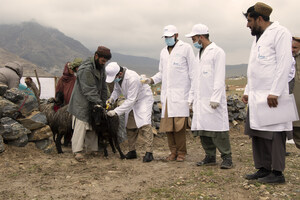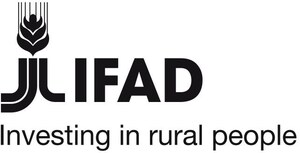Ending hunger and malnutrition demands that we invest more - and more smartly, says IFAD President
RIO DE JANEIRO, July 24, 2024 /PRNewswire/ -- Around 733 million people faced hunger in 2023, equivalent to one in eleven people globally and one in five in Africa, according to the latest State of Food Security and Nutrition in the World (SOFI) report published today by five United Nations specialized agencies: the Food and Agriculture Organization of the United Nations (FAO), the International Fund for Agricultural Development (IFAD), the United Nations Children's Fund (UNICEF), the UN World Food Programme (WFP), and the World Health Organization (WHO).
Launched this year in the context of the G20 Global Alliance against Hunger and Poverty Task Force Ministerial Meeting in Brazil, the annual report shows that the world has been set back 15 years, with levels of undernourishment comparable to those in 2008-2009.
Despite some progress, an alarming number of people continue to face food insecurity and malnutrition as global hunger levels plateau for three consecutive years, with approximately 152 million more hungry people than in 2019 (733 million).
Following current trends, about 582 million people will be chronically undernourished in 2030, half in Africa. Economic access to healthy diets remains a critical issue, affecting over one-third of the global population: over 2.8 billion people were unable to afford a healthy diet in 2022. This disparity is most pronounced in low-income countries.
The percentage of the population facing hunger continues to rise in Africa (20.4 percent), while stable in Asia (8.1 percent)—though still representing a significant challenge as the region is home to more than half of those facing hunger worldwide —and shows progress in Latin America (6.2 percent). From 2022 to 2023, hunger increased in Western Asia, the Caribbean, and most African subregions.
Alvaro Lario, President of IFAD said: "The fastest route out of hunger and poverty is proven to be through investments in agriculture in rural areas. But the global and financial landscape has become far more complex since the Sustainable Development Goals were adopted in 2015. Ending hunger and malnutrition demands that we invest more - and more smartly. We must bring new money into the system from the private sector and recapture the pandemic-era appetite for ambitious global financial reform to bring cheaper financing to the countries that need it most."
Contact: Alberto Trillo Barca, Communication Officer: [email protected]
SOURCE International Fund for Agricultural Development

WANT YOUR COMPANY'S NEWS FEATURED ON PRNEWSWIRE.COM?
Newsrooms &
Influencers
Digital Media
Outlets
Journalists
Opted In






Share this article